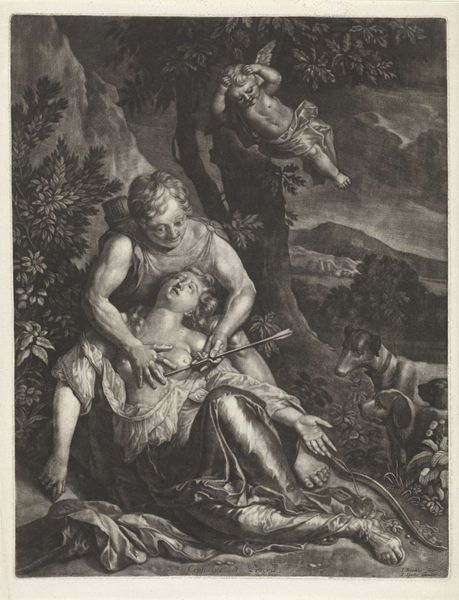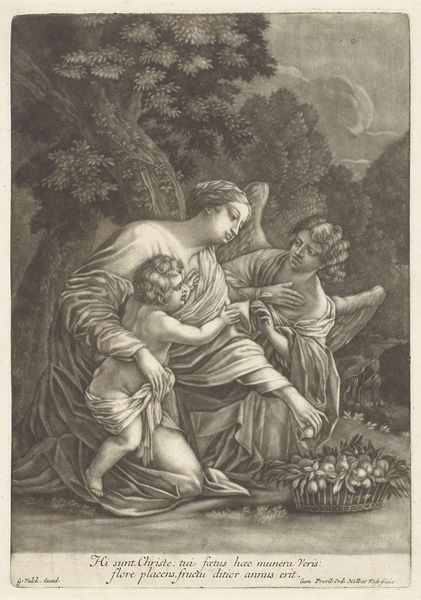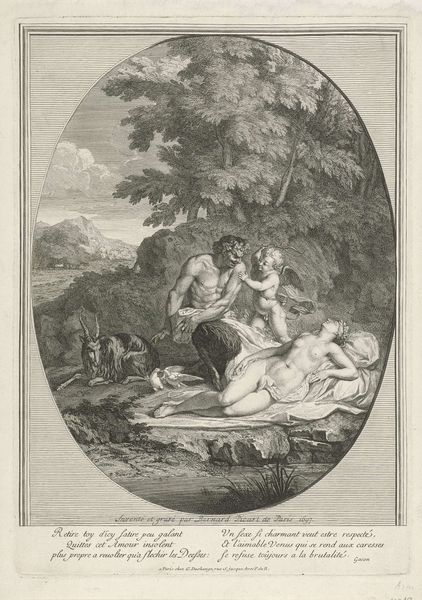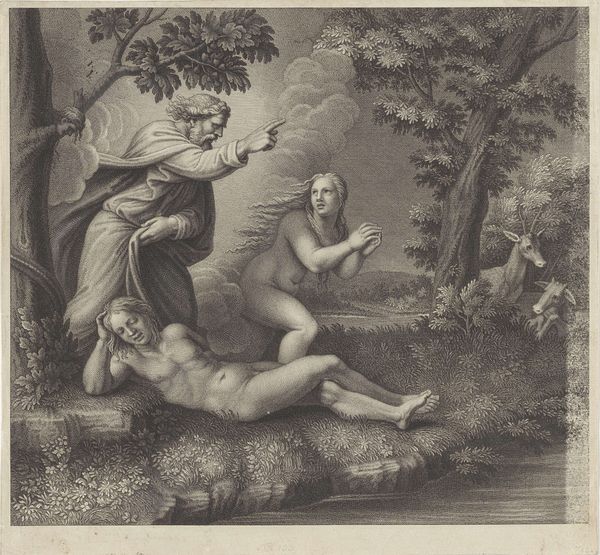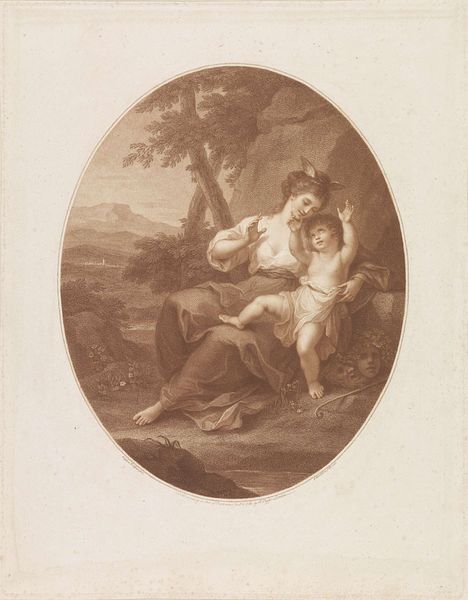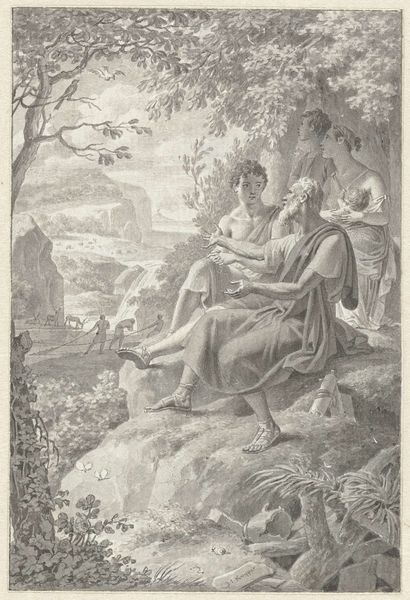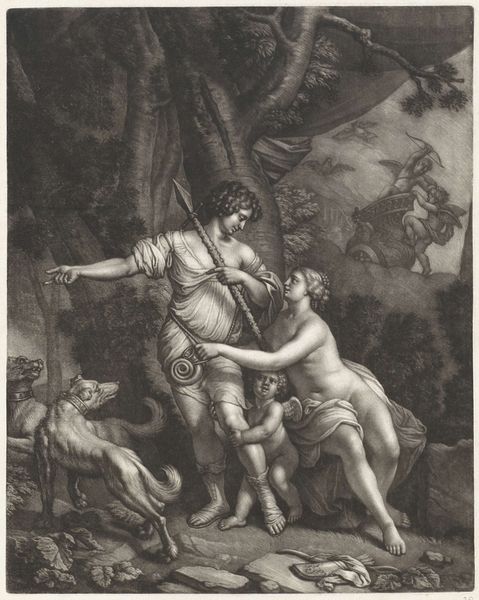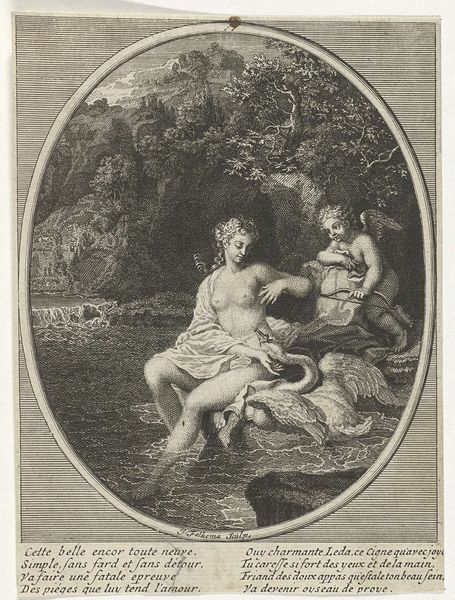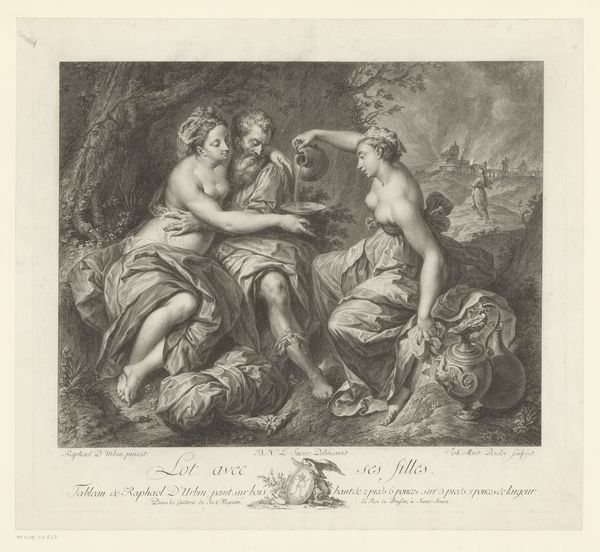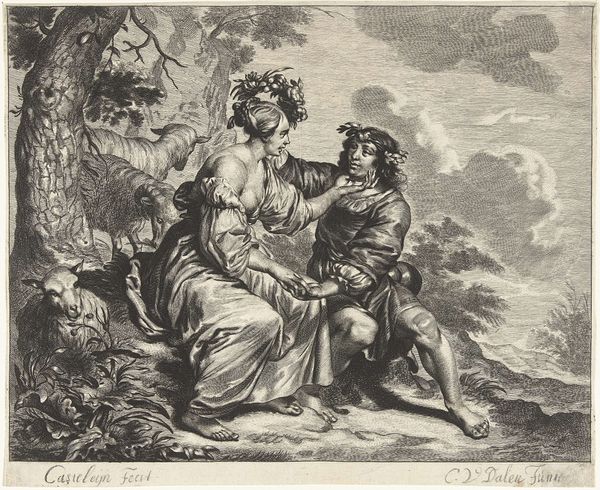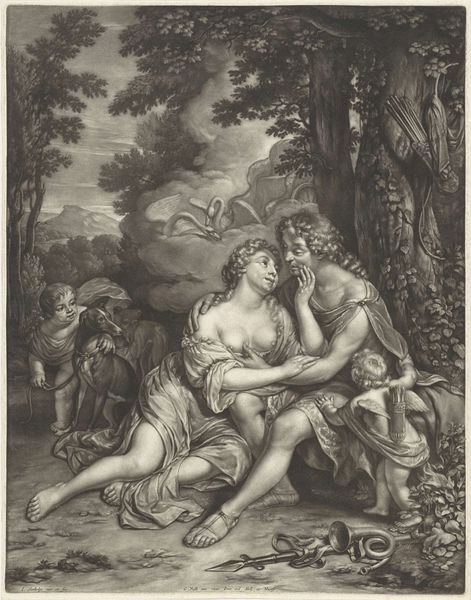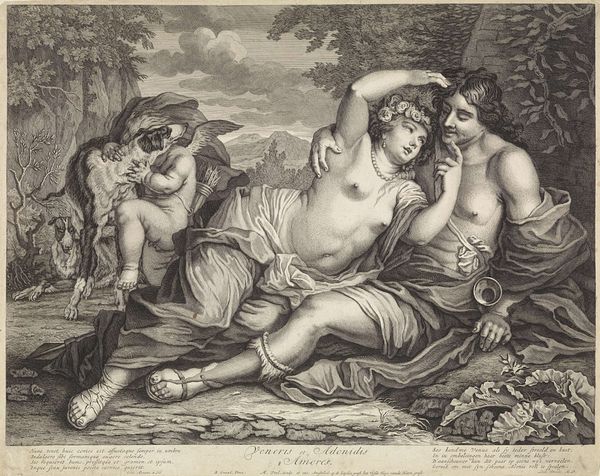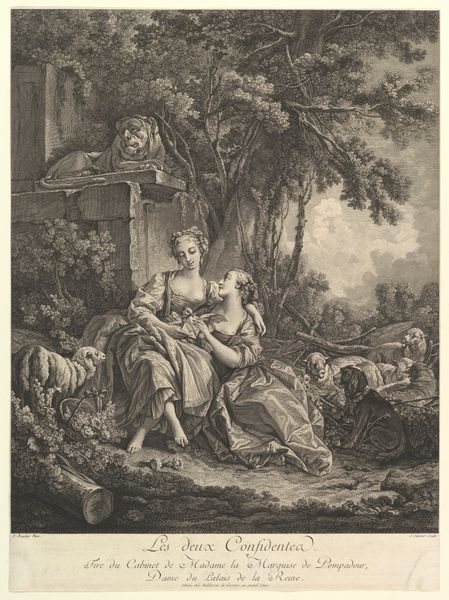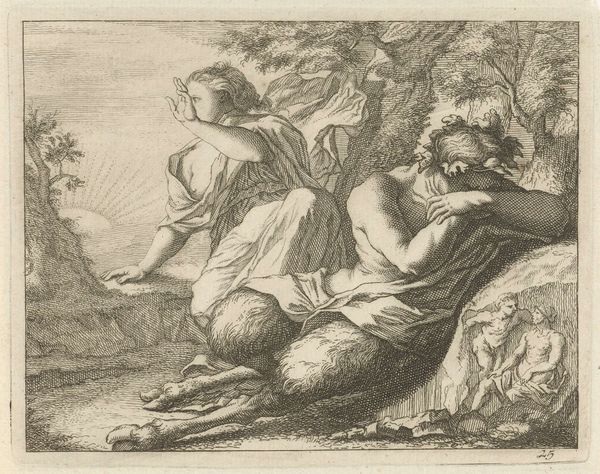
print, engraving
#
baroque
# print
#
landscape
#
figuration
#
genre-painting
#
engraving
Dimensions: height 155 mm, width 200 mm
Copyright: Rijks Museum: Open Domain
Arnold Houbraken created this print called ‘Herderin en herder met hun kind’ sometime before 1719. Observe the shepherdess adorned with a wreath of flowers, seated with her child. Her companion plays a flute, evoking the idyllic Arcadia of classical pastoral scenes. This imagery is laden with symbolism, resonating with ancient notions of fertility and harmony with nature. The wreath, a timeless emblem, appears in countless guises, from ancient Greek victory wreaths to the floral crowns of Renaissance allegories. Consider Botticelli's ‘Primavera’ where Flora scatters blossoms, or the crowned figures in Roman portraiture. The image is a potent symbol, reflecting our yearning for innocence and a return to primordial simplicity. Such depictions tap into what Jung would call the collective unconscious, engaging viewers on a subconscious level, evoking feelings of nostalgia and longing for a lost paradise. Thus, the echoes of this symbol resound through time, proving that symbols never truly vanish.
Comments
No comments
Be the first to comment and join the conversation on the ultimate creative platform.
